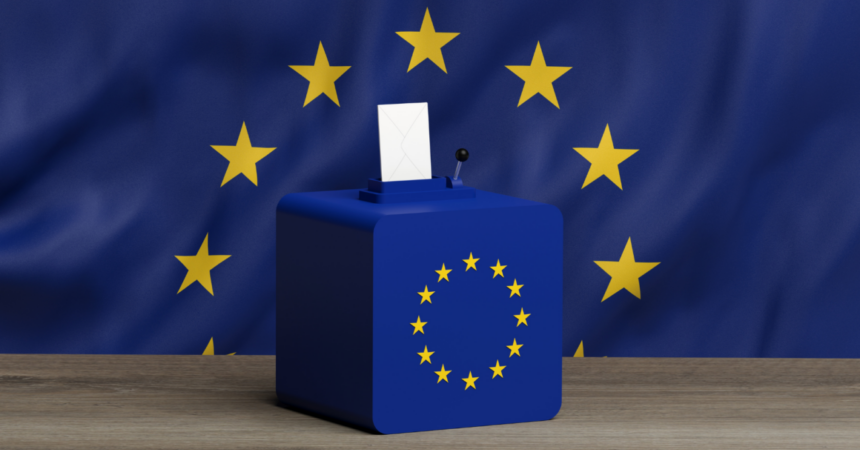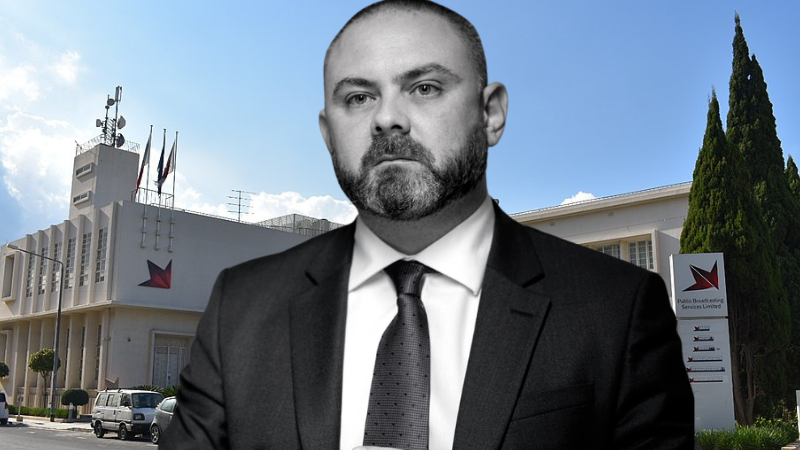All eyes on Sunday were fixed on ‘the Gap’. As the day wore on, the size of ‘the gap’ between the votes garnered by representatives of Malta’s major parties shrunk from 23,000 at the start of the day to around 8,000. Early analysis of the numbers was predictably simplistic and opportunistic.
Robert Abela proclaimed a victory early. He had to. The miraculous alignment of stars meant that a Labour party that had haemorrhaged votes could still say it had ‘won’ the elections, having obtained the largest number of first-count votes.
Such declarations normally suffice to appease the baying rabble of party die-hards who need a simple signal to kick off their festive jubilation. The numerical victory meant state and party propaganda could plug the headline “Labour wins MEP elections” from around midday.
Bernard Grech also walked into the counting halls of Naxxar with an air of triumphant celebration. Early on, the signs were there that ‘the gap’ had begun to be filled.
Quite quickly, too, the scare in the form of Arnold Cassola and the independents had made way for the PN to recover the coveted third seat.
Victory of victories was proclaimed to the banging of perspex and the singing of archaic party anthems with obsolete overtones of fascist enthusiasm.
Roberta Metsola graced the halls with her presence and maintained the detached decorum befitting of her post. She could have gloated with the power of a person who has just obtained 1 out of every 4 votes cast in the election.
She was hailed as the Queen and Messiah. She could not escape the inevitable question of “What next?” that was loaded with the implication of her pending return to ‘local’ politics at the helm of the PN. Her reply was clear – there is no difference between Maltese and European politics. Interesting.
Alex Agius Saliba will surely not attribute his record-breaking vote count to donkey votes, thanks to his acquired surname. His presence at the halls was somewhat muted due to parallel events at Labour HQ. Roberta Metsola’s trailblazing within the EP has had spinoff benefits for the only labour MEP to contest the election.
His socialist grouping would have required a Maltese national to shadow his counterpart from the EPP, which meant higher visibility that paid off dividends.
Less about the candidates now. What do we make of this election of multiple victors? To begin with, Labour could not have been humbled much more than this. The only worse result would have been to lose the majority outright.
They did fall below the absolute majority threshold. Combining PN votes, other party votes and abstentions we will find that there is little to no faith in this government’s candidates beyond the party core.
Speaking of abstentions and other party votes, the PLPN duopoly has been dealt a severe lesson. Over 130,000 voters have no confidence in either of the two parties. A clear vote of disapproval of the PLPN style of politics. The winner takes all. The stranglehold over institutional and constitutional matters that is choking our democracy.
We saw glimmers of this in the campaign, with the heavily PLPN-biased Electoral Commission refusing Cassola and the ADPD’s requests for access to data.
Which brings me to the PN. My most significant takeaway is that this PN has had all the work done for it. All the talk of hard work and progress wilts when faced with the reality of the numbers involved.
Comparisons are made mainly with the previous EP elections (2019) and the 2022 National Elections. The PN has hardly progressed, gaining 11,000 votes since 2019 but only shifting with less than a percentage point from the 2022 result.
Undoubtedly, Metsola’s presence on the PN list guaranteed the third seat. Her two quota votes combined with the second preferences from candidates such as Cassola might have just about saved the day insofar as the seat is concerned.
The other parties—the non-PLPN candidates—obtained 13% of the votes (32,882 combined). Considering Labour’s lost votes, the PN cannot rest on its dubious laurels when it sees that most of those votes did not swing its way.
I was livid listening to Bernard Grech speak from the counting hall. Even more livid when he spoke later, having had time to reflect. What was that nonsense about the people having chosen the PN and its ‘economic plan’?
Why did he consciously avoid any talk about the corruption that we are facing, the backsliding of the rule of law, and the myriad of challenges and problems that the current government has created and that the PN should be poised to solve?
Instead, Grech gave us the drivel of politics of unity, positive messages and setting oneself up as an alternative government. An alternative government that pushes all the wrong buttons because it fails to acknowledge the PN’s role in the wrecking of a constitutional system that has allowed the rise of a corrupt government.
It pushes the wrong buttons because it fails to tackle the elephant in the room – that before even considering the role of leading the nation, the PN must undergo a profound transformation.
Such a transformation should renege the heritage of being part of a duopoly that chokes the state and institutions. It should commit to a new form of open politics that allows for wider participation by more parties and ends the career-driven politics-for-gain culture represented by the PLPN today.
I am aware that this would be done to the detriment of the very PN itself, but this is the only way in which the PN could lead the change. By being the change.
And no more perspex banging and mobs singing hymns. Pretty please.













‘…fails to acknowledge the PN’s role in the wrecking of a constitutional system that has allowed the rise of a corrupt government.’
That says it all in a nutshell.
Moreover, can we please do away with the rowdy motley crew behind the perspex, and instead have them entertained at the respective parties’ HQ, wherein they can follow the scanning of the documents on screen to their hearts’ content – their “function” if ever there was one – is now obsolete.
Excellent analysis, especially the PN role in all this…
Labour won the election? Only the MLP sheep could swallow this drivel. To any other observer, the election result was a draw!
Hear, hear!
Most of the EU is governed by coalition governments that are forced to balance a multitude of views. One size really doesn’t fit all; nor do two sizes based on the same flawed pattern.
Are the Maltese really so much smarter than most European democracies (except the Brits, of course)?
I think not.
The usual running in circles. While this analysis is certainly straight to the point and is balanced in dishing out to both sides, it once again misses to shed a light and even mention one particular political movement which isn’t a party to vote for.
Since I have read this apparently so often considered as being ‘irrelevant’ and also often ignored publication ‘Reforming Malta’s Parliament’ by Repubblika, I must have really bored those I have recommended this publication to read it, beyond imagination. Neither side of the ‘traditional divide’ among the Maltese really gave it a complete read and thought about it. Some of those who declined to read it, told me that this was because of the author of it. It was again more a personal matter than an objective one.
It can’t be helped, people in Malta are, by their majority (going by my experiences) that stubborn that they love to see the wall in front of their eyes, and therefore lack the ability to look around and see what is next to them. Too hard to take the right step into the right direction where the path opens up to improving the political system and thus, bring about the means to end corruption. The PL won’t end it and the PN doesn’t have the means either.
It is good news to me and to see, that at least the small parties, among them the ADPD made gains in this EP election. They can be the alternative to the PL for those who are left-wing or centre-left but became fed up with the PL and the PN as well. A number of 130K voters abstaining from voting because they don’t see any merit in it anymore, isn’t a number that should be ignored. But still, they are ignored. That is the real ‘silent majority’ to me, the part of the Maltese people that has given the PL and PN the boot.
When will Malta be ready to listen to its own progressive people, who have shown and proved that they are the better ones, the ones who stood outside the swamp of corruption in Malta, the ones who did their bit in order to uphold the rule of law?
It’s been more than three years since this above mentioned publication and Repubblika has developed from a once protest movement into an NGO that has the people and the means to lead, but they still refuse to take up that role for which, in my opinion, they are destined to take.
Reading articles like this one, as well as those I have read on here in the past couple of years is certainly of merit, but unless there is the courage arising from among those who are determined enough to change the political landscape of Malta, things are destined to remain the same.
Therefore, Repubblika has to transform itself first, before its publication about reforming Malta’s Parliament would even have the slightest chance for being the road map towards a new Republic of Malta. To transform itself into a political party the electorate will be given the chance to vote for. On the local, the national and the European level. That’s something for a brighter future, even when considering this to be an illusion today, it might become a reality tomorrow, if they just have the will to do it. I am certain that they could secure votes, how many is hard to say or even to predict, but it would work.
Without any change in the political landscape of Malta, this very website will still be publishing articles about the same things, the same parties PL and PN in 2027, when the next GE in Malta is due.
Wouldn’t it be a fresh start to have the civil society movement of Malta, as it formed itself in 2019 to have the leading NGO to transform itself into a centrist party where votes can be gained from a broad spectrum of the electorate, from centre-right to centre-left and attract those who have given up on politics to think again and give this new party a chance?
I can only suggest, but knowing the Maltese mentality, I also know that such appeals are often in vain. In the end of the day, this is your country and your mess, created and worsened by those who have been voted into power again and again. That is my conclusion from the content of this article and my experience from following politics in Malta over the past years.
Reformation doesn’t come from indifference and lethargy, it demands reflection and consideration. This has all been done years ago by Repubblika, but they refuse to move on, taking the next step of which I have written above and in previous comments.